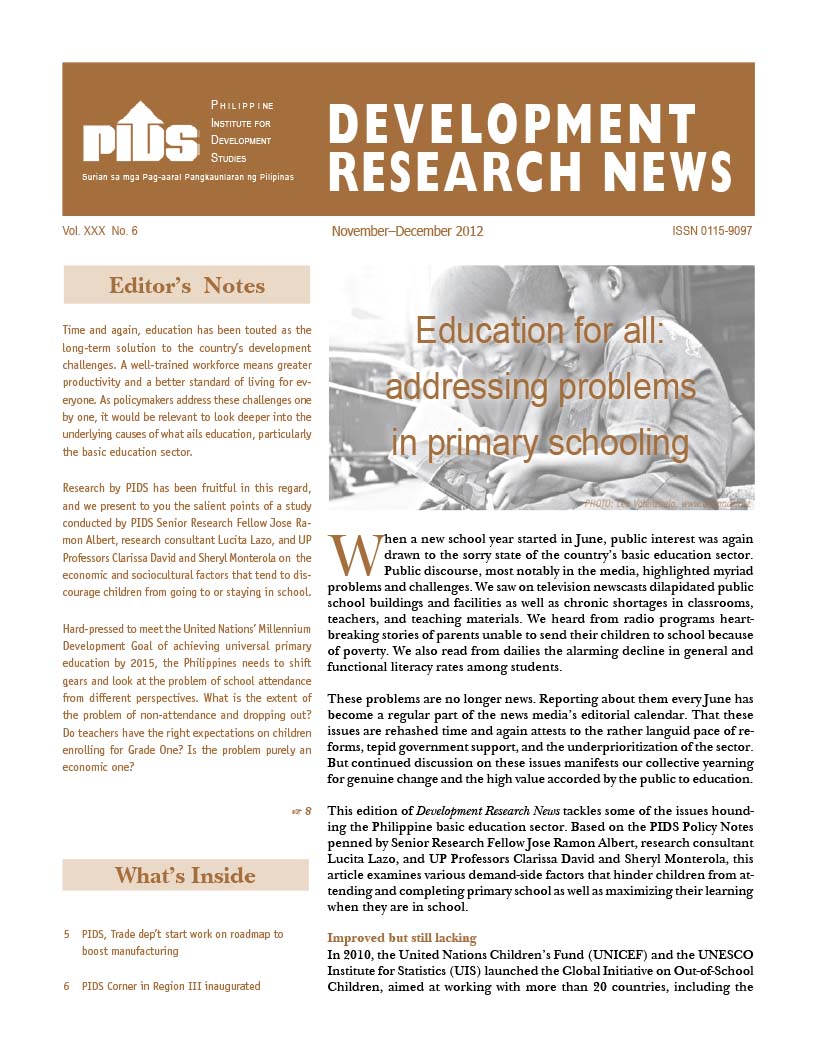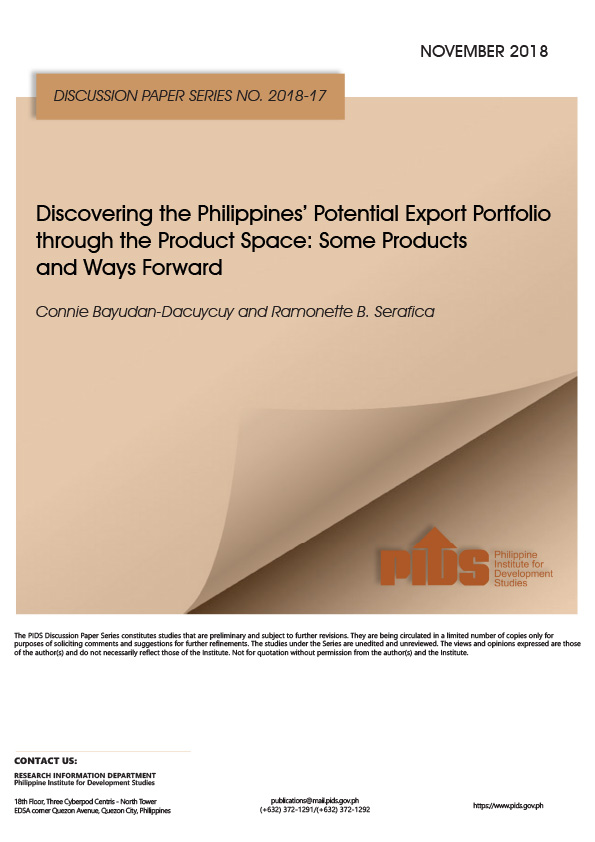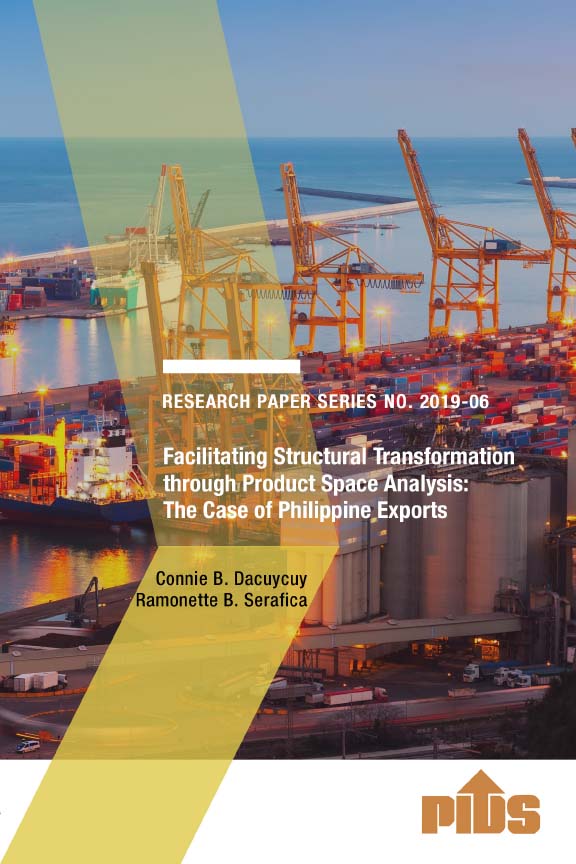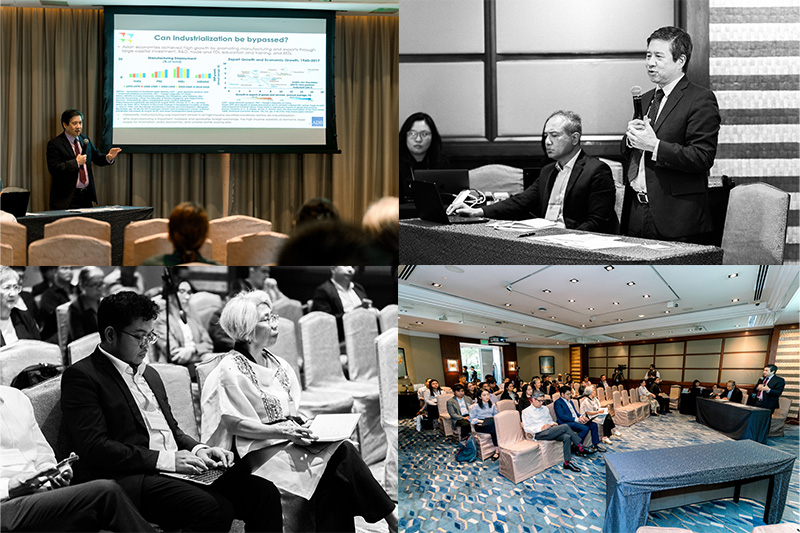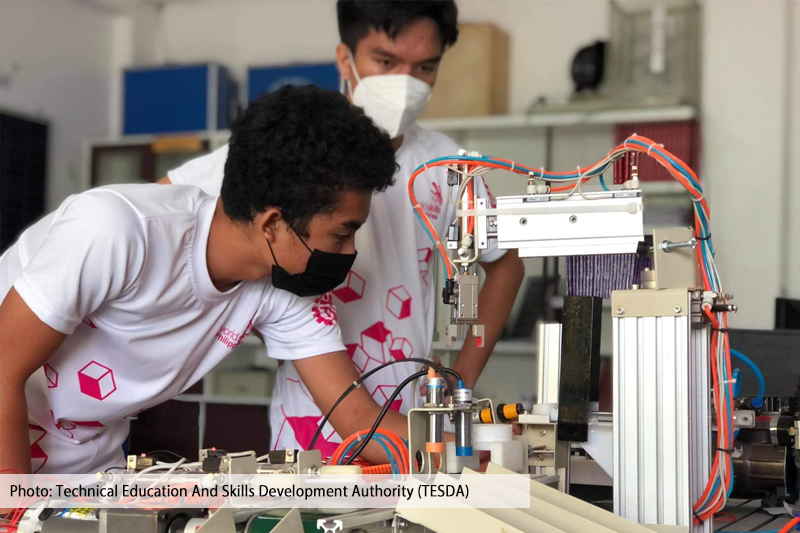The Philippines needs to transform and upgrade the local manufacturing sector to take advantage of opportunities from a bigger market in the Asean Economic Community (AEC) by 2015 and to sustain high economic growth, a study by the Philippine Institute for Development Studies (PIDS) said. "One way to accelerate or make the road map (for industry) useful is to take advantage of the imminent establishment of the AEC,” Dr. Josef Yap, who served as president of PIDS, said in the study. Yap said the comprehensive road map for the industry, which consolidated about 30 road maps from different sectors, address both horizontal and vertical constraints and coordination failure affecting local businesses. "You have horizontal constraints – they (sectors) complain about power cost, inadequate infrastructure and smuggling. Smuggling almost always came out as a problem,” he said. To improve productivity, Yap said a cluster-based intervention is imperative to increase supply of skilled workers, encourage technology adoption and improve regulation and infrastructure. He also pushed for the implementation of legislation; strict enforcement of product quality standards; provision of access to raw materials, intermediate inputs and common service facilities and research and development (R&D) facilities to address coordination failure. Yap said vertical problems are those which are peculiar to different industries like close supply chain gaps and expansion of domestic market and exports. He underscored the need to implement a vertical program to attract investments through temporary fiscal incentives particularly to auto-shipbuilding and iron and steel sectors. The dimension of coordination problems has been added, he said "because some sectors cannot progress without the progress in other sectors.” Yap said it is thus important to create the proposed industry council that will address these coordination mechanisms. The council will be represented by the academe, industry and government.

